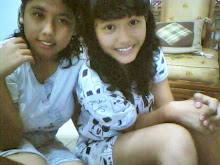Singkat kata, Asking for information adalah tata cara bertanya dan lebih dikenal dengan 5W+1H
(Sering ada di buku Bahasa Indonesia)
THE USE OF WH-QUESTIONS
What - Apa
When - Kapan
Where - Dimana
Why – Kenapa/Mengapa
Who - Siapa
How - Bagaimana
COMBINED WITH TO BE
(Is, Are, Were, Was)
What is … Your name?
When were … You born?
Where are … They?
Why were … They here?
Who are … Those people?
How … About you?
COMBINED WITH AUXILIARY VERBS OR MODALS
(Do, Does, Did, Shall, Might)
What do … You do?
When did … You come
Where shall … we meet?
Why does … She cry?
Who might … Get my lost pen?
How could … It be?
GUESSING:
I’d say … I know where to find the book
It could be … somewhere in the library
Perhaps it’s … on the top of the shelf
I think it’s … not there anymore
It looks like … someone has taken the book
It’s difficult to say, but I’d guess …
It’s being borrowed by a student
Information about Price What are you asking for this?\
What does this sell for?
How much is it?
How much does it run?
This (one) sells for $5900.
This one goes for $2900.
This one is priced at $9695.
Construction
There are a number of formulas used when asking for information in English. Here are some of the most common:
· Could you tell me…?
· Do you know…?
· Do you happen to know…?
· I’d like to know…
· Could you find out…?
· I’m interested in…
· I’m looking for..
These two forms are used for asking for information on the telephone:
· I’m calling to find out…
· I’m calling about…
Here are some sample phrases and sentences for asking information in English
1. What is this? This is a table
2. What is that? That is a chair.
3. What’s this? It’s a pen.
4. What’s that? It’s an apple.
5. What are these? These are pencils.
6. What are those? Those are books.
7. Where is Mr. King? He is over there.
8. Where is Ms. Knight? She’s (right) here.
9. Where’s Johnny? He’s in the house.
10. When’s the movie? It’s at 9:00.
11. When’s lunch? Lunch is at noon.
12. How is the food? It’s delicious.
Information about company
What does your company do?
What is your specialty?
What do you specialize in?
What is your main line of business?
Information about products
Could you give me some (more) information on this?
What can you tell me about this (product)?
Tell me about this one/model.
Information about Price
What are you asking for this?
What does this sell for?
How much is it?
How much does it run?




